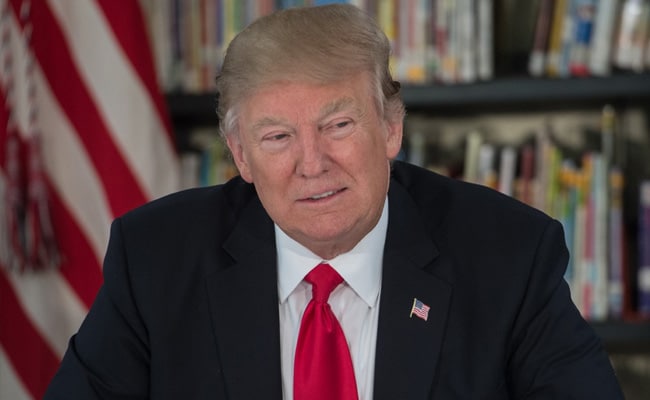
US government says Donald Trump has wide authority to implement immigration policy.
A federal judge on Wednesday said the state of Hawaii could file an amended complaint against President Donald Trump's new executive order temporarily banning the entry of refugees and travellers from six Muslim-majority countries.
U.S. District Court Judge Derrick Watson in Hawaii said the state could add to its initial lawsuit, which had challenged Trump's original ban signed in January. The state is claiming the revised ban signed by the president on Monday violates the U.S. Constitution. It is the first legal challenge to the revised order.
The state of Hawaii will ask the court on Wednesday to put an emergency halt to Trump's new order, according to a court schedule signed by the judge. A hearing is set for March 15, a day before the new ban is to go into effect.
The revised travel order changed and replaced an original, more sweeping ban issued on Jan. 27 that caused chaos and protests at airports and was challenged in more than two dozen lawsuits around the country. A federal judge in Seattle put the first order on hold, in a decision upheld by an appeals court in San Francisco.
The new order is much more narrowly tailored. It keeps a 90-day ban on travel to the United States by citizens of Iran, Libya, Syria, Somalia, Sudan and Yemen, but excludes Iraq and applies the restriction only to new visa applicants. It also removed an indefinite ban on all refugees from Syria.
Legal experts have said court challenges will be more difficult now because changes to the order give exemptions to more people.
Hawaii claims its state universities would be harmed by the order because they would have trouble recruiting students and faculty. It also says the island state's economy would be hit by a decline in tourism.
Immigration advocates have said the new ban, like the original one, discriminates against Muslims.
The government says the president has wide authority to implement immigration policy and says the travel rules are necessary to protect against terrorist attacks.
U.S. District Court Judge Derrick Watson in Hawaii said the state could add to its initial lawsuit, which had challenged Trump's original ban signed in January. The state is claiming the revised ban signed by the president on Monday violates the U.S. Constitution. It is the first legal challenge to the revised order.
The state of Hawaii will ask the court on Wednesday to put an emergency halt to Trump's new order, according to a court schedule signed by the judge. A hearing is set for March 15, a day before the new ban is to go into effect.
The revised travel order changed and replaced an original, more sweeping ban issued on Jan. 27 that caused chaos and protests at airports and was challenged in more than two dozen lawsuits around the country. A federal judge in Seattle put the first order on hold, in a decision upheld by an appeals court in San Francisco.
The new order is much more narrowly tailored. It keeps a 90-day ban on travel to the United States by citizens of Iran, Libya, Syria, Somalia, Sudan and Yemen, but excludes Iraq and applies the restriction only to new visa applicants. It also removed an indefinite ban on all refugees from Syria.
Legal experts have said court challenges will be more difficult now because changes to the order give exemptions to more people.
Hawaii claims its state universities would be harmed by the order because they would have trouble recruiting students and faculty. It also says the island state's economy would be hit by a decline in tourism.
Immigration advocates have said the new ban, like the original one, discriminates against Muslims.
The government says the president has wide authority to implement immigration policy and says the travel rules are necessary to protect against terrorist attacks.
© Thomson Reuters 2017
Track Latest News Live on NDTV.com and get news updates from India and around the world

